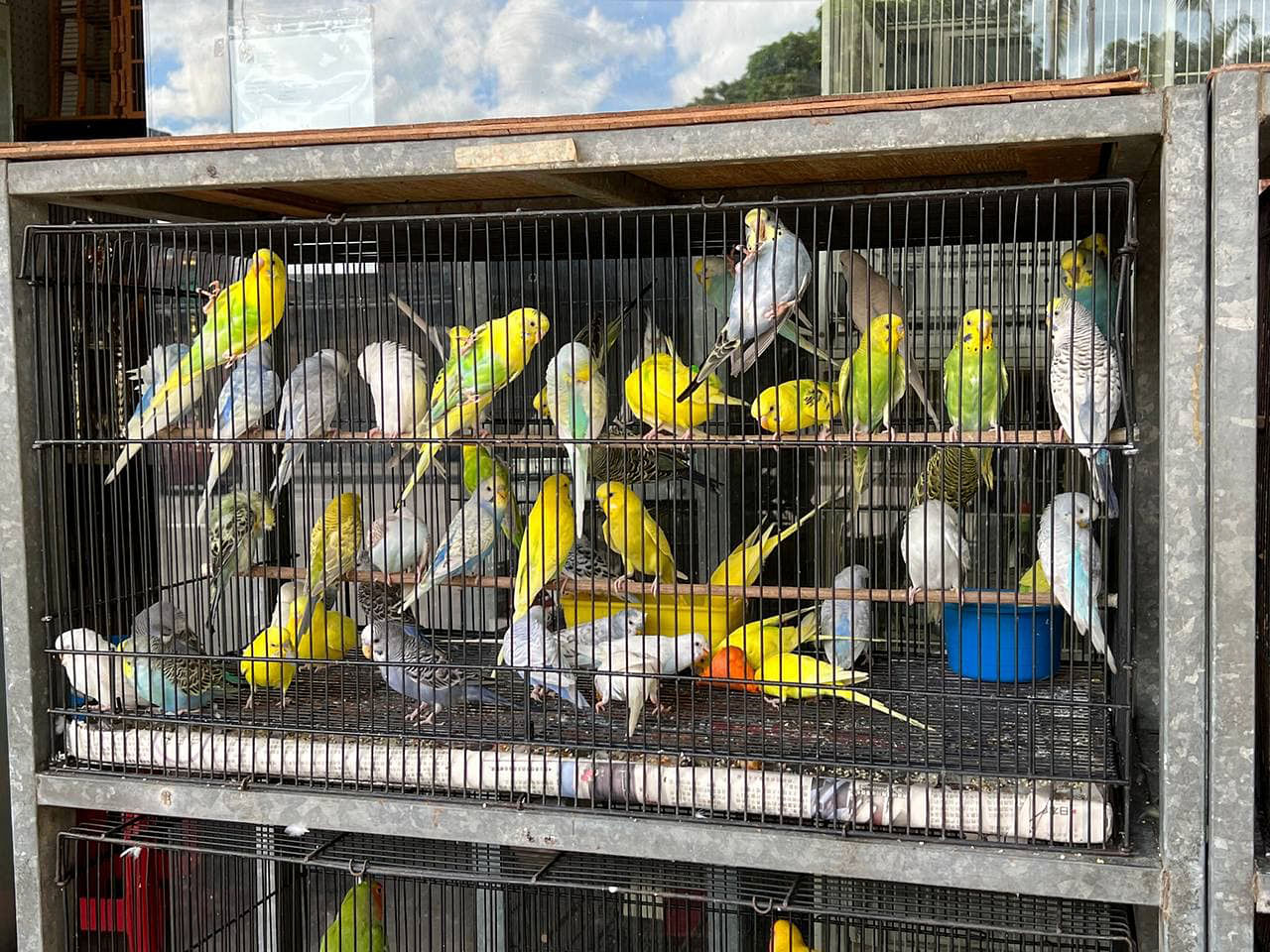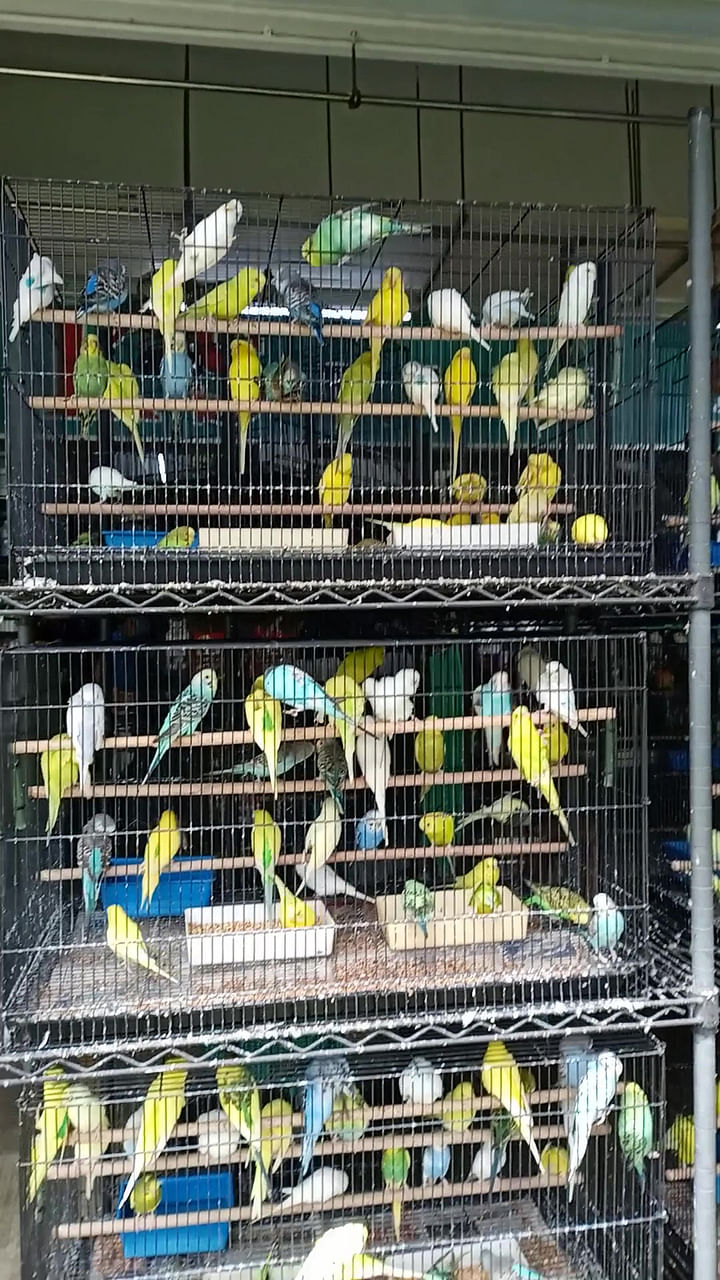Over 60% of bird shops islandwide fail one or more basic welfare conditions: Acres
Sign up now: Get ST's newsletters delivered to your inbox

More than 40 per cent of the birds in the shops lived in an overcrowded cage, according to an undercover investigation.
ST PHOTO: GENA SOH
SINGAPORE - In one especially appalling example of bird shops cramming birds in cages, an undercover investigation found 49 finches in a single cage.
Now, local wildlife rescue group Acres has made specific recommendations to the Animal & Veterinary Service (AVS) after it surveyed 31 shops islandwide, with 61 per cent failing one or more of the most basic welfare conditions for birds.
The terms are set out in the Pet Shop Licence Conditions guidelines set by the National Parks Board (NParks). AVS is under NParks.
More than 30 per cent of the shops displayed sick, diseased or injured birds, and more than 25 per cent did not provide clean drinking water.
Almost half the shops did not give adequate space for birds to move freely and comfortably, with cages not large enough for all the birds to stretch their wings and tails completely.
Also, more than 40 per cent of the birds in the shops lived in overcrowded cages.
Under such dirty and overcrowded conditions, birds are more prone to distress, falling ill and developing a poor appetite.
These effects lead to other behavioural problems such as feather plucking, loss of feathers, stress and fights.
Although the findings mark an improvement in welfare conditions for birds from those in a separate undercover operation in 2016, where 75 per cent of 36 shops flouted at least one of these minimum conditions, Acres co-chief executive Anbarasi Boopal said there is a lot more room for improvement.
Some of the 31 shops inspected for the new report were also in the 2016 report, but some have closed and new outlets have opened.
The key to improving the situation further is to have more precise definitions of welfare, said Ms Anbarasi, 38, who oversaw Acres' undercover investigation, which was conducted from October 2020 to February 2021.
"The underlying root cause of many welfare concerns are the unclear definitions for overcrowding and space requirements that these diverse species of birds need.
"Hence, from this report, we would like to focus on the recommendations for the review of the bird licensing conditions for shops and code of animal welfare for bird keepers," she added.
Acres met with the AVS to discuss the investigation report in January, suggesting that guidelines should be revised to specify exactly how much space a bird needs in a cage in a pet store.
For instance, a cage is currently considered overcrowded when all the birds inside cannot spread their wings simultaneously.

gspet28-ol - Stacks of cages overcrowded with birds found outside a bird store in Singapore. Credit: Acres
PHOTO: ACRES
Acres now proposes that minimum cage dimensions should be specified based on size and wingspan of the different groups of commonly sold birds and comparative analysis of what other countries have in place.
Birds with complex needs, like parrots, should have toys for mental enrichment.
These suggestions are a step up in specificity from the recommendations made in the 2016 investigation, where Acres did not give exact directives.
"It is high time we improve the welfare standards of these birds and end seeing overcrowded cages as a norm at bird shops," Ms Anbarasi said.
Dr Chua Tze Hoong, AVS group director of industry and biosecurity whose division regulates pet shops, said: "To safeguard animal health and welfare, AVS will continue to review standards for the pet industry... We will be consulting relevant stakeholders soon on the review."
Local chain Pets Lovers Centre welcomes the new Acres suggestions.
Its birds are kept in clean, uncrowded cages with toys for enrichment. In some stores, separate play pens with toys have been installed for the birds.

gspet28-ol - In Pet Lovers Centre's store in Nex, birds are taken out daily to be socialised in this playpen. Credit: Pet Lovers Centre
PHOTO: PET LOVERS CENTRE
Mr Parawan Dutch Boie Marces, a pet care consultant at Pet Lovers Centre, said shops have a duty to show new owners how best to keep animals safe and healthy.
"It's important for pet shops to adhere to these welfare standards because we are the customer's first touch point with owning their pet," he added.
"Therefore, pet shops have the responsibility of showing customers how to responsibly take good care of their pets."


